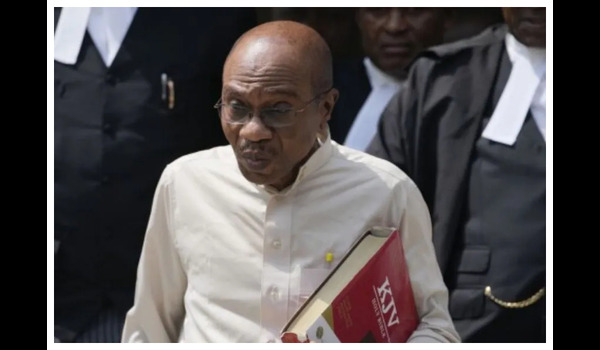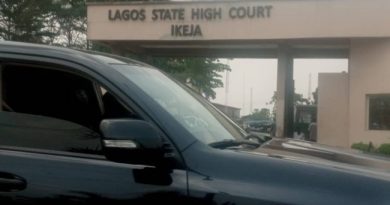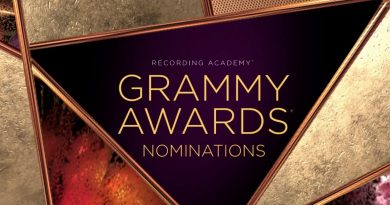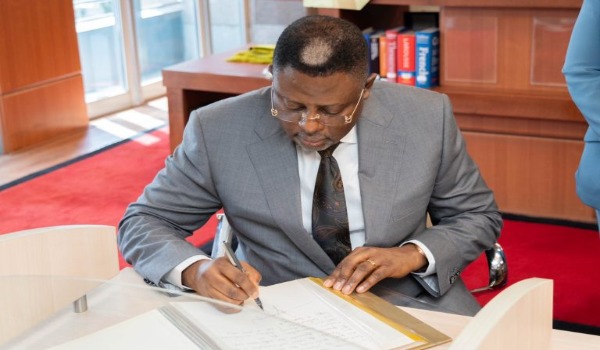New evidence preferred against fmr. CBN governor, Emefiele in court
Justice Rahman Oshodi of the Lagos State Special Offences Court, Ikeja, will on Thursday, October 9, deliver a ruling on the admissibility of critical digital evidence presented by the Economic and Financial Crimes Commission (EFCC) in the ongoing trial of former governor of the Central Bank of Nigeria, Godwin Emefiele.
Mr Emefiele is facing a 19-count charge of alleged fraud alongside one Henry Omoile.
At the hearing on Wednesday, the eighth prosecution witness, Alvin Gurumnaan, who is an EFCC operative, while being led by the lead prosecution counsel, Rotimi Oyedepo (SAN), during the continuation of his evidence-in-chief, had detailed the digital trail uncovered during the investigation.
The witness told the court about WhatsApp conversations between key individuals in the case, extracted from the phone of a former Executive Assistant to the CBN Governor, John Adetola, during the investigation.
The EFCC witness explained the acronym “PCS” found in the chats, stating that one “piece” was a code signifying a unit of $1,000.
Further analysis of the mobile phone of the former Executive Assistant, allegedly unveiled chats with one Eric Eboh, in which instructions were given to deliver $400,000 “for Oga.”
Mr Gurumnaan testified that the said Adetola confirmed receiving and delivering the specified amount, adding that efforts to trace and interrogate the reportedly elusive Mr Eboh are ongoing.
While some documents dated February 2024 presented by the prosecution were admitted as evidence without any objection by the defence, a bundle of subsequent documents extracted from Adetola’s phone met stiff resistance from the lead defence counsel, Olalekan Ojo, SAN and Kazeem Gbadamosi, SAN.
The defence counsel raised concerns about the alleged non-authenticity and certification of the documents sought to be tendered as exhibits.
The defence counsel added that the document, which was electronically generated, must be tendered as a certified true copy in line with section 84 of the Evidence Act, as it wasn’t generated by John Adetola but by the EFCC through its officers.
In his response, EFCC’s lead counsel, Rotimi Oyedepo (SAN), argued that the document required no certification, as the witness only testified as to the originality of the equipment used to generate it.
He added that the document in question belongs to the EFCC, and anyone who is familiar with the device or computer can give evidence on it.
’It is primary evidence of a private conversation between two people contained in a device; the real document is what was endorsed by Mr Adetola.
There is no alteration on it, as the handwritten portion of the document, being opposed to by the defence, doesn’t alter the contents and so should be admitted for the court to evaluate it. It is relevant to the fact in issue and forms the basis of counts 18 to 20 in the charge sheet.”
Justice Rahman Oshodi adjourned until Thursday to deliver his ruling.




